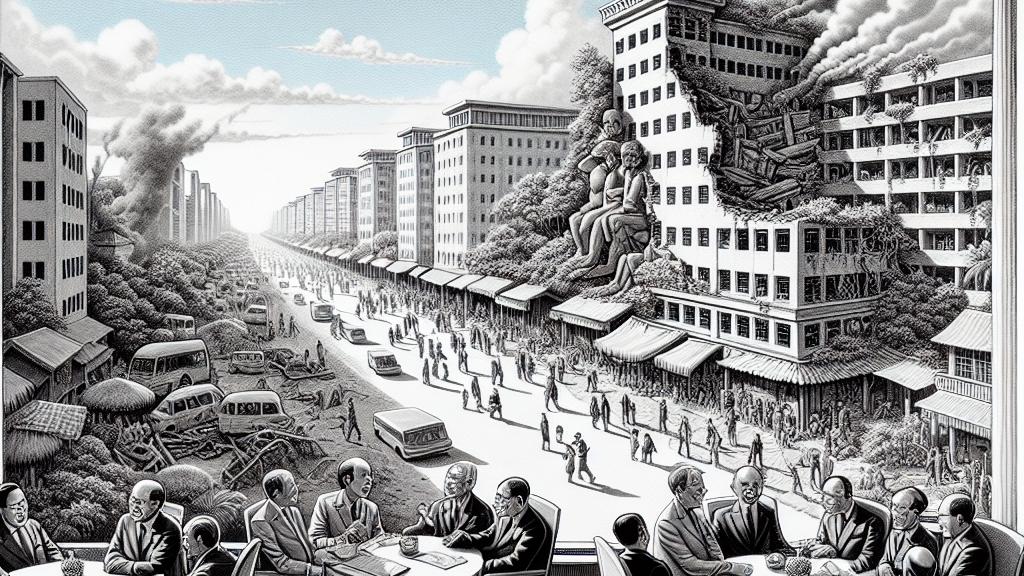Understanding Trump's Controversial Ideas About Gaza
Overview
- Trump's radical proposals for Gaza represent significant territorial shifts that disturb many.
- He imagines revitalizing the area, yet faces massive backlash from the global community.
- These suggestions not only challenge international law but also raise profound ethical questions about human rights.

Expanding Horizons or Overstepping Bounds?
In the bustling corridors of Washington, President Trump's audacious remarks regarding the Gaza Strip have not only startled diplomats but also ignited widespread public outrage. This isn’t just idle talk; it reflects his ambitious goal to extend U.S. influence, wrapped in grandiose visions of transformation. Picture this: a vibrant resort sprawling across the landscape where war-ravaged buildings once stood, enticing visitors with promises of tranquility! However, behind this shiny facade lies the undeniable truth—that countless lives have been disrupted in this tumultuous region. Critics argue that Trump’s understanding is alarmingly superficial, dismissing the complex and painful history etched into Gaza’s streets. To formulate an alluring real estate fantasy without acknowledging the human suffering is a grave oversight.
A Proposal Framed as Humanitarian?
When Trump suggests relocating over two million Palestinians, he cloaks this troubling ambition in the guise of humanitarian concern. Beneath this facade lies a potent risk of ethnic cleansing, igniting moral indignation globally. To uproot entire communities merely to make way for redevelopment raises serious ethical questions. Consider this: would you want your hometown transformed into a luxury resort, regardless of the lives it displaces? Envisioning such a radical upheaval serves to underscore the human cost that often gets lost in political discourse. The urgency of finding lasting solutions for the people of Gaza should overshadow capitalistic motivations; thus, prioritizing human dignity over parcels of land becomes paramount.
Reactions from the International Community
The international response to Trump’s remarks has been swift and unwavering, ushering a storm of criticism from leaders across the globe. Major Arab nations have rapidly denounced his proposals, raising alarms about potential destabilization in an already fragile region. They view these actions as a reflection of extremist agendas seeking to forcibly remove Palestinians to expand territorial claims, further crudeling the path to peace. For example, many believe that these ideas ignore the historical context of displacement that has plagued Gaza since its inception. Genuine resolution is only attainable through listening to the voices of those affected—after all, how can peace be achieved when the rights and aspirations of the Palestinian people are silenced?

Loading...